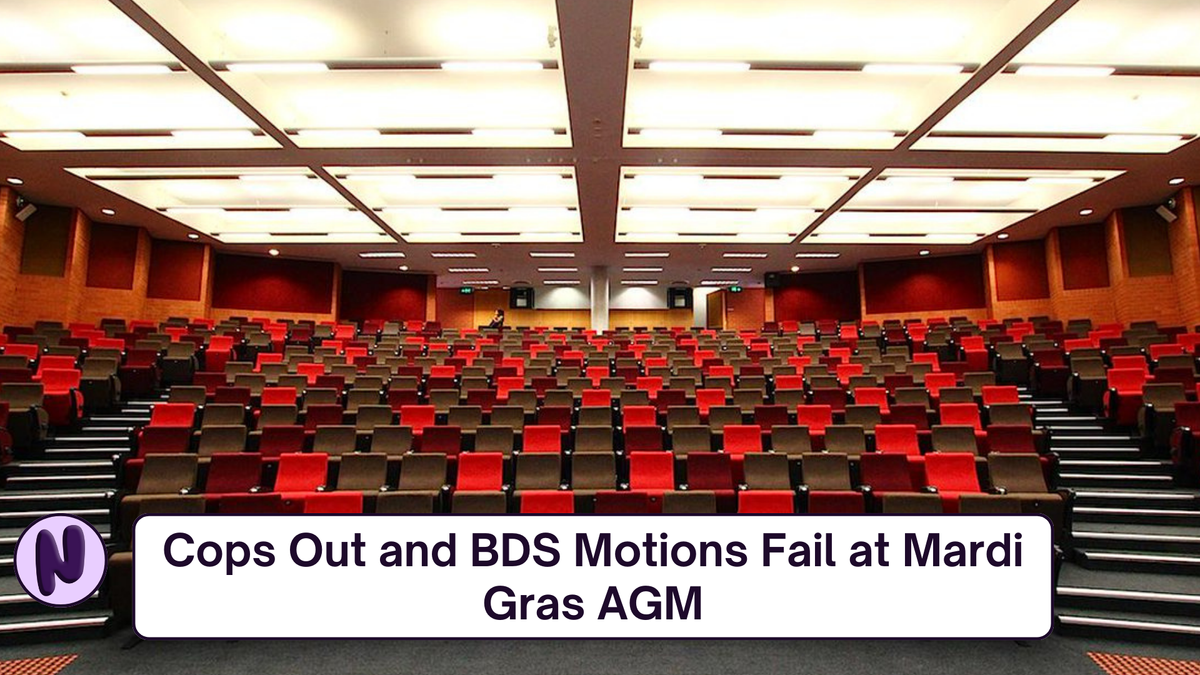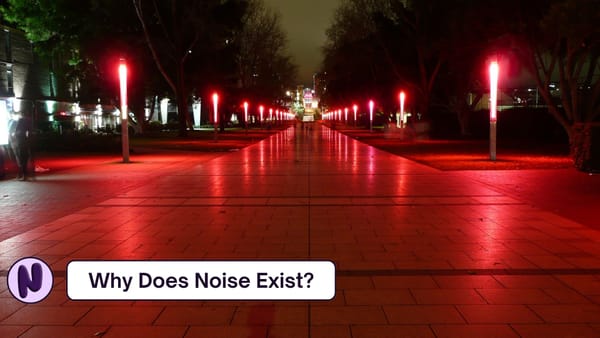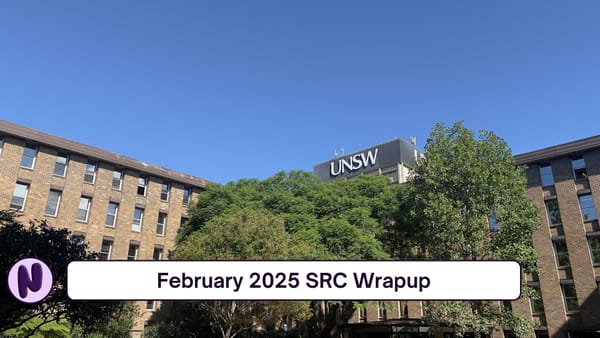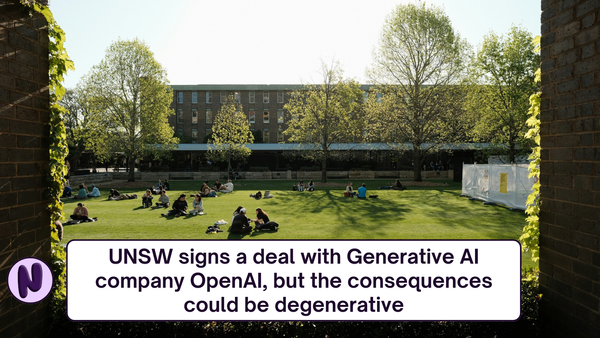Cops Out and BDS Motions Fail at Mardi Gras AGM
10 of the 12 total resolutions failed to pass, including resolutions on Cops Out and BDS Motions

Every year, the Mardi Gras Corporation which organises the annual Sydney Gay and Lesbian Mardi Gras parade and festival, holds an Annual General Meeting (AGM) where members propose and vote on policies for the next year's Mardi Gras festival.
Mardi Gras Corporation CEO Gil Beckworth delivered her CEO’s report, detailing the financial struggles of the previous year. She outlined the deficit as brought on by 3 factors; the cancellation of Fair Day, the box-office failure at the Bondi party, and general economic pressures.
The board generally spoke to the effect of economic pressures and changing consumer behaviour. Production costs rose 20-40% while ticket prices had only risen about 9% compared to previous years. Festivals across the country have faced similar challenges, evident in the cancellation of major festivals from Groovin The Moo to Splendour in the Grass and Bluesfest. It isn’t too surprising to hear that ticket sales for Bondi Party suffered, falling $1.6 million short of expected figures with a 30% budget blowout. Combined with Fair Day’s cancellation costing $700,000, it seemed everything that could go wrong, went wrong. It was now time for austerity measures.
Conservative budgeting was the rule as the board spoke to their plan for recovery. They pushed their achievements of getting rent-free offices and multi-year sponsor grants, co-presenting events, and conservative budgeting. Most shocking to the left bloc was the announcement of a 20% staff layoff. The board stated they had also received additional governmental funding.
Questions regarding the CEO and executive’s reports, however, were focused on governance and protecting the festival from risk, with a major focus on the risk that the Bondi Party poses to the organisation’s financial future. The executive assured the meeting that the party was relatively risk-free due to a new risk management framework.
When asked about what sponsors were rejected in accordance with the Ethics Charter and the cost of user-pays policing, the CEO refused to comment, apart from stating that Fair Day and the parade itself were exempt from user-pays policing. After further questioning on the board's risk-taking and the lack of a treasurer (despite a treasurer's report being published) a 5-minute break was called before voting would begin on resolutions after the voting of lifetimer and 78er membership.
Resolution 2 - Mardi Gras Needs To Do More To Support Western Sydney & Regional NSW Queers
A procedural was heard to move resolution 2 forward due to it being “uncontroversial” compared to resolution 1, this procedure was carried and the resolution was moved first.
Proponents of resolution 2 talked about the wave of queerphobia that has particularly affected those in western Sydney and regional NSW, evident in events that arose out of the Cumberland council book ban, including the throwing of objects at those against the ban. Speakers highlighted the need for visibility among these communities, particularly migrant and poorer queers with less access to the community.
Those against the Resolution spoke to the need for Mardi Gras to be separate from third parties that operate in these areas already and maintain Mardi Gras’ ethos. The need for austerity and conservative budgeting was brought against the Resolution, as it was seen as just too risky, a trend that took over this AGM.
Resolution 2 was carried with 477 for, 445 against and 49 abstaining, a very close call for an allegedly uncontroversial Resolution.
Resolutions 1, 3, 4 - Police Participation
Resolutions 1, 3, and 4 discussed police participation in the Mardi Gras parade, separate from police presence as event security. Motion 1 was moved by the Mardi Gras Board, Motion 3 by Pride in Protest, and Motion 4 by members of Rainbow Labor, the latter of which did not call for police exclusion but for conditional police presence including that marching police be part of the LGBTQIA+ community and that they not march in uniform. The debate for this will be reported en bloc.
Those against the resolutions called for the need for allies, which they believe the police represent, and condemned the idea of the ‘exclusion’ of an organisation. Many of them believed in the goodwill of the police wanting to engage with the community and fix its issues from the inside. They acknowledged the experience expressed throughout community consultation earlier this year but claimed this sample was not entirely representative of the community.
Speakers for the resolutions highlighted the fact that police abusing the queer community is not just a historical issue, but an issue we live with today, sharing stories of first-hand abuse by police, and the stories shared from community consultations held by Mardi Gras. The issue of exclusion was countered, raising that police can come with other communities they are a part of, just not as uniformed and gun-toting police officers. Another rebuttal was made on the topic of exclusion, reframing police inclusion as the exclusion of those who have trauma related to police violence, Blak mob, drug users and sex workers.
Following an extended debate, these Resolutions all failed.
Resolution 12 – Mardi Gras Supporting Freedoms and Dignity for Trans Women in Detention
A procedural motion was called to move resolution 12 Mardi Gras Supporting Freedoms and Dignity for Trans Women in Detention ahead of resolution 5 due to fear of time constraints.
Resolution 12 called for Mardi Gras to recognise, advocate and support trans women in detention. It called for the endorsement of specific campaigns and legislative action to ensure safety, dignity and human rights. The motion was spoken to via a recording of trans women kept in detention at Riverwood detention centre. They recounted stories of abuse and mistreatment they had suffered from being allegedly profiled by border forces, and when placed in detention in a men's facility not built or suitable for these women.
No one spoke against resolution 12, and it was carried with 691 votes for, 206 against and 62 abstentions.
Resolution 5 – Equality without Exceptions
Resolution 5 regarded banning any politicians who did not support the Equality Bill in full from participating in the parade in 2025. The movers spoke to the Australian Labor Party’s refusal to pass the Bill, and the subsequent deal to remove anti-discrimination protections from the Bill in order to gain the Party’s support. They cited the recent wave of anti-LGBTQIA+ hate sweeping the western suburbs on religious grounds, and stated that many private sector institutions were religious and free to continue their discrimination.
Speakers against the Resolution pointed out that allies within the Labor party, such as Tanya Plibersek, won’t be able to march in the parade, and that if the LGBTQIA+ community chooses to exclude people with different political opinions then the future of the march is grim.
Resolution 5 failed with 434 votes for, 470 votes against and 32 abstentions.
Resolution 6, 7, 11 – Palestine and BDS
There were 3 Resolutions relating to the Ethics charter and Mardi Gras’ BDS impact. These will be reported about en bloc.
Resolution 6 was to encourage partners to support Palestine, Resolution 7 called for Mardi Gras to divest from partners that support Israel, and Resolution 11 called for the Ethics charter to be expanded for clarity about human rights abuses.
Movers spoke to the genocide in Gaza and the Apartheid in the West Bank, saying that Mardi Gras has an obligation to Palestinians as part of its ethics charter and that its members don’t want their money to be funding the genocide. They said that expanding the charter will improve members’ faith in the organisation and that by being transparent in their divestment the organisation can inspire others to divest.
Speakers against the motion once again pointed out that exclusion based on political views was not in the spirit of Mardi Gras. They acknowledged that even though the genocide was horrible, it was not within the Mardi Gras scope to purge partners that might have ties to Israel.
All three resolutions failed.
Resolution 8 - AMEX Oppresses Sex Worker Income
Resolution 8 demanded that Mardi Gras end its partnership with American Express (Amex), and support sex workers who have been harmed by the anti-sex work policies of Amex and by Mardi Gras’ exclusion of sex workers. Speakers for the motion brought up that despite Australian legislation legalising sex work in many states, American Express imposes American laws to punish sex workers, freezing accounts and attacking sex workers. They also highlighted the need to continue to support sex worker rights, including the addition of sex work in the Anti-Discrimination Act.
Speakers against questioned the legitimacy of the claim that Mardi Gras had excluded sex workers and the board in its recommendations disputed the claim of Amex’s discrimination and highlighted the importance of the partnership for Mardi Gras.
Resolution 8 failed with 423 votes for, 492 votes against and 80 abstentions.
Resolution 9 – LGBTQIA+ Workers During Sydney Gay and Lesbian Mardi Gras
Resolution 9 called the board to push for Mardi Gras parade day to be declared a public holiday in order for casual workers employed by external businesses that benefit from the parade to enjoy holiday rates, and for other queer workers to be able to enjoy festivities.
Movers argued that hospitality workers don’t earn much compensation for the work that they do to support the environment on the parade night, especially workers who are not affiliated with Mardi Gras itself.
Speakers against argued that industry workers received Saturday time-and-a-half rates for working the night of the parade as it usually occurs on Saturday, and questioned what workers weren’t receiving this in reference to employees of the Mardi Gras corporation itself.
Resolution 9 failed with 468 votes for, 483 votes against and 73 abstentions.
Resolution 10 – Safety Summit
Resolution 10 called for a safety summit regarding general queer safety concerns, that the NSW police would not be invited to.
Movers argued that Mardi Gras was well suited to bring different stakeholders together in order to host this summit and make it successful, especially since their main event of the year is constantly overpoliced.
Speakers against argued that while the summit was a good idea in theory, the Corporation could not afford to run such an event and that there were other organisations more suited to this kind of work.
Resolution 10 failed with 441 votes for, 477 votes against and 46 abstentions.
Mardi Gras Director Elections
Board Directors were also voted on leading up to and during the AGM with 1190 ballets cast and results published yesterday (December 9th). Four director positions were voted on joining the total 8 positions;
- Damien Nguyen (Pride in Protest)
- Mits Delisle (Rainbow Labor)
- Brad Booth
- Brandon Bear (previous 2024 Co-chair)
They join continuing directors Kathy Pavlich, Louis Hudson, Kyriakos Gold and Luc Velez. This comes as a major win for Pride in Protest now securing 2 board positions granting greater sway and the ability to call extraordinary general meetings of Mardi Gras membership.
Despite many resolutions failing to pass, Damien Nguyen (incoming director) of Pride in Protest spoke to the progress that was made; “we know now that it’s a question of when, not if, the police will be removed from the parade”. Damien also spoke to Palestine and BDS motions being “narrowly voted down” despite the lack of people willing to speak against the resolutions “with most members avoiding putting their name to supporting genocide”.
The overarching theme of the AGM was a fear towards taking risks, and austerity. Members were cautious to jeopardize relationships with their corporate and government benefactors, and this came at the cost of progressive politics.




